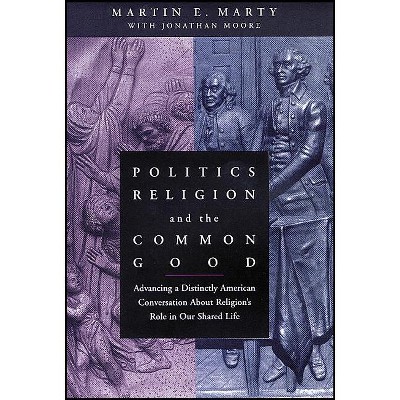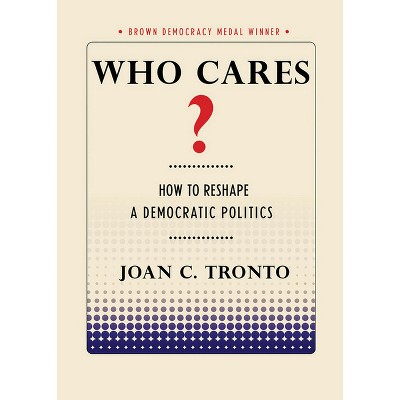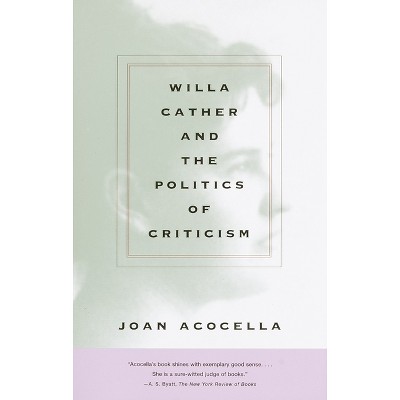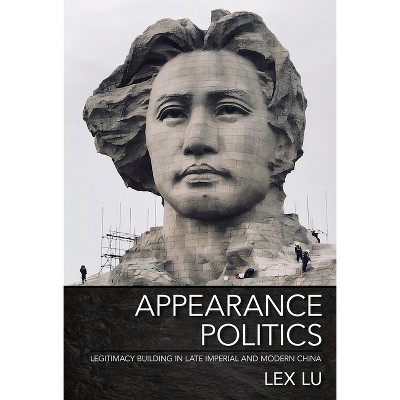Sponsored

The Politics of Common Reading - by Joan Judge (Paperback)
$40.00
Pre-order
Eligible for registries and wish lists
Sponsored
About this item
Highlights
- Examines the transformation of vernacular knowledge during a pivotal period of modern Chinese history, 1894 to 1954.
- About the Author: Joan Judge is professor of history at York University.
- 416 Pages
- History, Asia
Description
About the Book
"Examines the transformation of vernacular knowledge during a pivotal period of modern Chinese history, 1894 to 1954. In The Politics of Common Reading, Joan Judge examines an era of modern Chinese history, ranging from 1894 to 1954, which she terms "the long Republic." During this era, she explains, editors and compilers accommodated the needs of common readers by secularizing and standardizing texts relating to health, technology, and agriculture, including handbooks and recipe collections. Based on detailed research, she argues that these texts were quietly revolutionary in liberating common readers from state structures that sought to transform them while offering them practical knowledge, technical know-how, and tools for self-improvement. Judge examines an understudied corpus of 500 how-to texts alongside government documents, archival materials, newspapers and periodicals, fiction and other media. She brings to life the way these books were published and circulated through a national network, urban and rural bookstalls, and mail order channels. She examines how these collections were compiled, reassembled, and repurposed, and how they experimented with visual strategies to help readers process and memorize new information. She focuses on the kind of vernacular knowledge these publications promulgated across a series of domains-opium addiction, electricity, cholera infection, and horticulture. Finally, she devises composites of individual knowers so that we can better know them: details of the crises they faced, the remedies they tried, and the texts they might have consulted. She ultimately argues that the acts of conciliation these readers engaged in shaped the broader epistemic terrain from which historical change was actualized in China's century of revolution"--Book Synopsis
Examines the transformation of vernacular knowledge during a pivotal period of modern Chinese history, 1894 to 1954. What did common readers read in the midst of the revolutions that punctuated China's long Republic (1894-1954)? How did they manage the often-unprecedented challenges of the era? What did they know and how did they know it? In The Politics of Common Reading, Joan Judge traces the unfolding of a consequential politics of accommodation that engaged commoners as knowers rather than as an unenlightened mass. A response to the institutional failures of the era, this politics was enacted through an informal knowledge infrastructure comprised of low-budget publishers, rustic bookstalls, and a piecemeal national network. As yet unstudied, this infrastructure produced and circulated up to ten times the number of books as official, mainstream channels. A corpus of some five hundred of these cheap collections of recipes and techniques serves as the basis for this book. Judge focuses on four challenges common readers faced: how to cure an opium addiction, avoid an electric shock, prevent a cholera infection, and graft a plant. She further draws on government, archival, periodical, and fiction materials in devising composites of individual common readers so that we can better know them: details of the crises they faced, the remedies they tried, and the knowledge they relied on as they concocted cures and applied technologies. She argues that the acts of conciliation and assemblage these readers engaged in shaped the broader epistemic terrain from which historical change was actualized in China's century of revolution.Review Quotes
"A meticulously researched study complete with intriguing illustrations, Judge's elegant book offers a fresh glimpse into the history of knowledge construction in China. Illuminating how day-to-day life interests and concerns were inextricably linked to popular perceptions of science, religion, health, and politics to form a complex web, this is an insightful volume for anyone seeking a deeper understanding of modern China."-- "Angela Ki Che Leung, emeritus, University of Hong Kong"
"Through her vivid and empathetic charting of the new forms of technical knowledge in early twentieth-century China, Judge tracks a 'mundane revolution' that remade the Chinese public. Groundbreaking in the mode of E. P. Thompson and Roger Chartier, this magnificent book on the politics and pragmatics of reading will fascinate everyone interested in literacy and society."-- "Francesca Bray, University of Edinburgh"
About the Author
Joan Judge is professor of history at York University. She is the author and coeditor of several books, including Republican Lens: Gender, Visuality, and Experience in the Early Chinese Periodical Press.Dimensions (Overall): 9.0 Inches (H) x 6.0 Inches (W)
Weight: 1.0 Pounds
Suggested Age: 22 Years and Up
Number of Pages: 416
Genre: History
Sub-Genre: Asia
Publisher: University of Chicago Press
Theme: China
Format: Paperback
Author: Joan Judge
Language: English
Street Date: December 3, 2025
TCIN: 1006060976
UPC: 9780226842813
Item Number (DPCI): 247-33-5498
Origin: Made in the USA or Imported
If the item details aren’t accurate or complete, we want to know about it.
Shipping details
Estimated ship dimensions: 1 inches length x 6 inches width x 9 inches height
Estimated ship weight: 1 pounds
We regret that this item cannot be shipped to PO Boxes.
This item cannot be shipped to the following locations: American Samoa (see also separate entry under AS), Guam (see also separate entry under GU), Northern Mariana Islands, Puerto Rico (see also separate entry under PR), United States Minor Outlying Islands, Virgin Islands, U.S., APO/FPO
Return details
This item can be returned to any Target store or Target.com.
This item must be returned within 90 days of the date it was purchased in store, shipped, delivered by a Shipt shopper, or made ready for pickup.
See the return policy for complete information.











